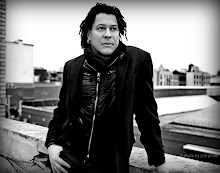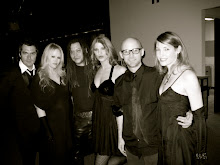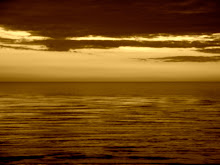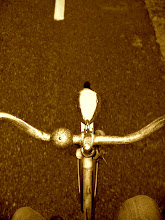The question is more of a metaphorical one. The metaphor being: If you share with me, your mortal coil, your thoughts, your desires and I, in return, love, vilify or otherwise revel in your soul, will we be any closer to the truth of who we are. Obviously, I say, unequivocally...YES!
It is also a statement made out of my desire to connect with my "friends". To decipher and understand the banality, glory and truth of who I am, who you are, who we are. Of course there is no simple answer. Our spirits, soul and human core is obviously more broad and complex. But, the question remains: a singular, direct, honest appeal for us to reveal and revel in our humanity via dialogue, communication and the recognition of our own existence. Our precious and rare collective singularity.
Here are some profound examples of this question or similar metaphors. Of course, I'm not nearly as eloquent nor as brilliant as Shakespeare, Descartes, Einstein, Henry Miller or Horace. Hence, I have too paraphrase.
1. "I think, therefore, I am" -"Cogito, ergo sum" (Latin: "I think, therefore I am") or Dubito, ergo cogito, ergo sum (Latin: "I doubt, therefore I think, therefore I am") is a philosophical statement used by René Descartes, which became a foundational element of Western philosophy. "Cogito ergo sum" is a translation of Descartes' original French statement: "Je pense, donc je suis", which occurs in his Discourse on Method (1637). (See Principles of Philosophy, Part 1, article 7: "Ac proinde hæc cognitio, ego cogito, ergo sum, est omnium prima & certissima, quæ cuilibet ordine philosophanti occurrat.")
2. "I am a Jew. Hath not a Jew eyes? Hath not a Jew hands, organs, dimensions, senses, affections, passions? fed with the same food, hurt with the same weapons, subject to the same diseases, healed by the same means, warmed and cooled by the same winter and summer, as a Christian is? If you prick us, do we not bleed? if you tickle us, do we not laugh? if you poison us, do we not die? and if you wrong us, shall we not revenge? If we are like you in the rest, we will resemble you in that". -An excerpt from Shylock's defense in "The Merchant of Venice" by William Shakespeare, Act III, Scene 1.
3. "To be, or not to be: that is the question:
Whether 'tis nobler in the mind to suffer
The slings and arrows of outrageous fortune,
Or to take arms against a sea of troubles,
And by opposing end them? To die: to sleep;
No more; and by a sleep to say we end
The heart-ache and the thousand natural shocks
That flesh is heir to, 'tis a consummation
Devoutly to be wish'd. To die, to sleep;
To sleep: perchance to dream: ay, there's the rub;
For in that sleep of death what dreams may come
When we have shuffled off this mortal coil,
Must give us pause: there's the respect
That makes calamity of so long life;
For who would bear the whips and scorns of time,
The oppressor's wrong, the proud man's contumely,
The pangs of despised love, the law's delay,
The insolence of office and the spurns
That patient merit of the unworthy takes,
When he himself might his quietus make
With a bare bodkin? who would fardels bear,
To grunt and sweat under a weary life,
But that the dread of something after death,
The undiscover'd country from whose bourn
No traveller returns, puzzles the will
And makes us rather bear those ills we have
Than fly to others that we know not of?
Thus conscience does make cowards of us all;
And thus the native hue of resolution
Is sicklied o'er with the pale cast of thought,
And enterprises of great pith and moment
With this regard their currents turn awry,
And lose the name of action. - Soft you now!
The fair Ophelia! Nymph, in thy orisons
Be all my sins remember'd".
-An excerpt from Hamlet's soliloquy in "Hamlet" by William Shakespeare, Act III, Scene 1.
4. "A human being is a part of a whole, called by us "the universe", a part limited in time and space. He experiences himself, his thoughts and feelings as something separated from the rest...as a kind of optical delusion of his consciousness. This delusion is a kind of prison for us, restricting us to our personal desires and to affection for a few persons nearest to us. Our task must be to free ourselves from this prison by widening our circle of compassion to embrace all living creatures and the whole of nature in its beauty." -Albert Einstein
5. Any genuine philosophy leads to action and from action back again to wonder, to the enduring fact of mystery.
-Henry Miller
6. Tu ne quaesieris, scire nefas, quem mihi, quem tibi Leuconoe, finem di dederint, Leuconoe, nec Babylonios temptaris numeros. Ut melius, quidquid erit, pati. Seu pluris hiemes seu tribuit Iuppiter ultimam, quae nunc oppositis debilitat pumicibus mare Tyrrhenum: sapias, vina liques et spatio brevi spem longam reseces. dum loquimur, fugerit invida aetas: carpe diem quam minimum credula postero -Horace, Ode 1
So...the question stands...and should always be asked...
Who are you? And...who are we?
Thank you for inviting me into the mystic...
P.S. This post may seem a little pretentious or bombastic...but I mean it, with all my deepest sincerity. So...take it...or fucking leave it...
Wednesday, September 5, 2007
"A Response To: The Question"
Posted by
Aaron A. Brooks
at
9:13 PM
![]()
Subscribe to:
Post Comments (Atom)






















































No comments:
Post a Comment